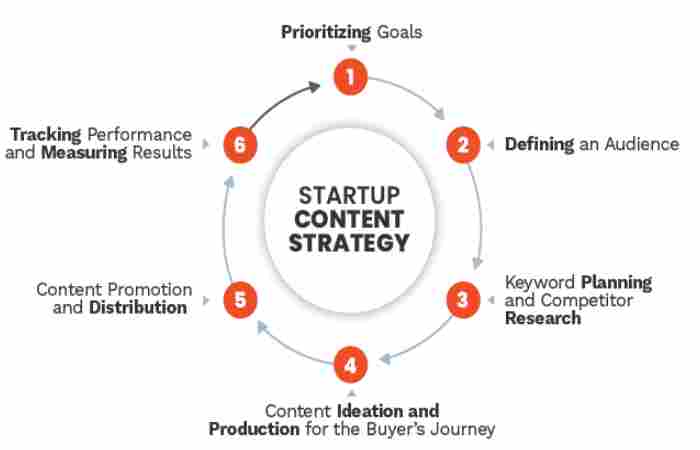Why Affordable Marketing Matters for Start-ups

Every start-up faces the same challenge — limited budget, unlimited competition. Big brands can afford high-end ad campaigns, but small businesses have to rely on resourceful, low-cost marketing strategies that deliver maximum results.
Affordable marketing isn’t about cutting corners; it’s about using your time, tools, and creativity efficiently. When done right, these methods can help you build awareness, attract leads, and create loyal customers — all without breaking the bank.
1. Use Social Media Marketing the Smart Way
Build Your Presence Where Your Audience Lives
Social media is every start-up’s best friend — it’s free, powerful, and effective. The key is not to be everywhere, but to be active on the right platforms where your target audience hangs out.
Here’s how you can do it effectively:
-
Start small: Focus on one or two platforms (like Instagram and LinkedIn).
-
Be consistent: Post regularly with valuable and relatable content.
-
Engage often: Reply to comments, join conversations, and use polls or stories to interact.
-
Leverage short-form video: Platforms like Instagram Reels and TikTok are amazing for quick brand awareness.
Pro Tip: Tools like Canva and Buffer help you design and schedule posts without needing a designer or social media manager.
Collaborate with Micro-Influencers
You don’t need celebrity influencers. Micro-influencers (with 1K–50K followers) have loyal audiences and charge far less. Partnering with them can get your brand noticed by potential customers who actually care about your niche.
2. Create High-Value Content That Educates and Converts
Blogging: Your 24/7 Sales Machine
Blogging remains one of the most affordable and long-term marketing tools for start-ups. A single SEO-optimized blog post can bring you traffic for months or even years.
Start with topics your customers are already searching for. For example, if you sell eco-friendly packaging, write about “How to Reduce Plastic Waste in Small Businesses.”
Keep your content:
-
Helpful and human – solve a problem.
-
Search-friendly – use keywords naturally.
-
Action-driven – include a call-to-action (CTA) for your services or products.
Video and Podcasts: Speak to Your Audience
If you’re not into writing, videos or podcasts are great alternatives. They build trust and connection fast. Use your smartphone — no fancy camera needed. Share tutorials, behind-the-scenes looks, or expert advice in your niche.
Pro Tip: Repurpose your content! A single blog can become an infographic, Instagram carousel, or video clip.
3. Master Email Marketing (It’s Still King)
Despite what people say, email marketing is not dead — it’s one of the highest ROI channels for small businesses. For every $1 spent, email marketing can return up to $42 in revenue.
How to Start Without Spending Much
-
Use free tools like Mailchimp or Brevo (formerly Sendinblue).
-
Offer a freebie — like a checklist or guide — to grow your email list.
-
Send personalized and relevant content (not just sales emails).
-
Keep your tone friendly, conversational, and real.
Send Valuable, Not Spammy Emails
Your goal should be to build relationships, not just make sales. Share stories, helpful tips, or updates that genuinely add value to your audience’s inbox.
Example: “5 Quick Productivity Tips for Small Business Owners” works better than “Buy Our Product Now!”
4. Leverage SEO and Local Marketing
Be Found Where It Matters
Search Engine Optimization (SEO) is one of the most cost-effective strategies you can invest in. Instead of paying for ads, SEO helps you attract traffic organically.
Start with the basics:
-
Use Google Keyword Planner or Ubersuggest to find low-competition keywords.
-
Optimize your website titles, headings, and images.
-
Write blog posts around questions people search for.
-
Use internal links to connect your content.
Focus on Local SEO
If you’re a local business, make sure you:
-
Create and verify your Google My Business profile.
-
Encourage customers to leave positive reviews.
-
Use location-based keywords (e.g., “Best bakery in Austin”).
Pro Tip: Local SEO can put your start-up on the map — literally. It’s free, easy to set up, and brings in real local customers.
5. Network and Build Partnerships
Collaborate Instead of Compete
Networking doesn’t always mean going to fancy events. It’s about building mutually beneficial relationships that expand your reach.
You can:
-
Partner with another small business to co-host giveaways or share promotions.
-
Offer to guest post on each other’s blogs.
-
Join local business groups or online communities (like LinkedIn or Reddit).
These collaborations help both brands grow faster — at almost zero cost.
Attend Free or Low-Cost Virtual Events
Many business webinars, summits, and workshops are now free or inexpensive. Attending them not only helps you learn from experts but also connect with like-minded professionals.
Example: A digital artist could collaborate with a small apparel brand to design limited-edition prints — both gain exposure from each other’s audiences.
Bonus Tip: Track Everything You Do
Affordable marketing doesn’t mean guessing. Use free analytics tools like:
-
Google Analytics – to track website visitors and conversions.
-
Meta Insights / LinkedIn Analytics – to understand your audience better.
-
UTM links – to see which campaigns perform best.
Tracking helps you understand what’s working so you can double down — and cut what isn’t.
Common Mistakes Start-ups Should Avoid
Even with great strategies, start-ups often fall into these traps:
-
Trying to do everything at once — focus on 2–3 key channels.
-
Ignoring branding — even budget businesses need consistent visuals and tone.
-
Skipping follow-up — don’t ignore potential leads who showed interest once.
-
Not defining goals — track your progress with clear metrics (traffic, engagement, conversions).
Why Affordable Doesn’t Mean Ineffective
Many of today’s biggest brands — from Airbnb to Canva — started with low-budget, high-creativity marketing. Their success wasn’t because they had deep pockets, but because they knew their audience and built authentic relationships.
When you focus on value over volume, every campaign can make an impact — even if it’s small. The more you understand your customers, the more your marketing resonates.
Conclusion: 5 Affordable Marketing Strategies for Every Start-up
At the end of the day, marketing doesn’t have to be expensive to be effective. The best strategies are the ones that help you connect with your audience genuinely and consistently.
So whether it’s social media, content creation, SEO, email marketing, or partnerships — these 5 affordable marketing strategies for every start-up can help you grow faster without overspending.

